- Home
- Joe McKinney
The Crossing: A Zombie Novella
The Crossing: A Zombie Novella Read online
Print Is Dead is a zombie-themed imprint from acclaimed indie publisher, Creeping Hemlock Press.
PRAISE FOR PRINT IS DEAD
"These guys know more about the undead than I do... and that's saying something, because I've been hanging out with zombies for as long as I can remember."
-George A. Romero,
writer/director of NIGHT OF THE LIVING DEAD, DAWN OF THE DEAD, and DAY OF THE DEAD
"This is the best of modern zombie fiction... you need to read the stuff these guys are putting out. It doesn't get any better than this."
-Joe McKinney,
author of FLESH EATERS and DEAD CITY
"PRINT IS DEAD is the terrifying new voice of zombie fiction. They're coming to get you..."
-Jonathan Maberry,
author of ROT & RUIN and PATIENT ZERO
PRAISE FOR JOE MCKINNEY
Joe McKinney is no longer a rising star on the horror scene; he has arrived. With each novel he writes he gets better and more mature.
-Scott Shoyer of Anythinghorror.com
If you are looking for a shocking and explosive read featuring the evil zombies of urban legends, this is the next series you need to read.
-My Overstuffed Bookshelf
Joe McKinney's writing is crisp, fast, and he seldom lets the characters (or readers) come up for air...an action-packed must read.
-R.B. Payne of Shroud Magazine
Welcome to Joe McKinney's Dead City universe, a relentless thrill ride where real characters do bloody things on nightmare streets. Break out the popcorn, you're in for a real treat.
-Harry Shannon, author Dead and Gone and The Hungry
McKinney writes zombies like he's been gunning them down all his life.
-Weston Ochse, author of Empire of Salt
THE CROSSING
Joe McKinney
NEW ORLEANS
2011
This is a work of fiction. All characters and events portrayed within are fictitious,
and any resemblance to real people or events is purely coincidental.
The Crossing
Kindle Edition by Creeping Hemlock Press, December 2011
The Crossing copyright © 2012 by Joe McKinney
All rights reserved, including the right to reproduce this book, or portions thereof, in any form.
Cover design & book design by Julia Sevin
A Print Is Dead book
Print Is Dead is a zombie-themed imprint of Creeping Hemlock Press
Editors: R.J. & Julia Sevin
Creeping Hemlock Productions, LLC
www.printisdead.com
www.creepinghemlock.com
THE CROSSING
This is dedicated to Ted Conover, for bravery in journalism.
ONE
A cold February wind fingered its way through the gaps in the walls. The little shack in which we’d taken shelter had been cobbled together from cinder blocks and castoff lumber, the roof a rusting sheet of corrugated tin held down by baling wire. Rotting sheets of plywood covered the windows. It was thin protection from the zombies massing outside. The place smelled of stale beer and sweat, mildew and rot, and the dim morning light revealed a lot of ice-encrusted trash on the floor - broken beer bottles; tin cans; a scattering of cigarette butts; an occasional spent shell casing - sad markers of others, like Jessica and me, who had taken refuge here.
Jessica hunkered down in the corner to get out of the seething wind. She had a tattered bath towel wrapped around her shoulders, but it was too threadbare to warm even her, withered as she was from starvation. She scanned the garbage, her breath pluming from the cold. I figured she was looking for something she could use. Depravation had made her keen that way. She never missed anything.
“Looks like we’re not the first to hide out here,” she said.
I looked around. It was hard to believe this was luck, but she was right. We were lucky to find the shack when we did. The surrounding countryside was empty grassland, nothing but an occasional mesquite thicket to break up the soul-sucking emptiness of it. There were few places to hide from the zombies. I tried to imagine all the others who had come this way before us, how every bit of garbage on the floor was a marker representing anxious days and nights waiting for the zombies to move on down the road. There was a faded blood stain on the wall above Jessica’s head, spattered, as though from a gunshot, and as I stared at it, I felt overwhelmed by the emotional sediment of desperation and exhaustion that permeated the small space. I never really believed, even as a little girl, that a place could be haunted. But if ever a place had a right to be, it was that shack.
Jessica went to the wall and stared out through a crack. I joined her, noticing as I did the gap in the lumber was smeared with dried blood left behind by fingers that had tried to claw their way inside.
There were two other shacks that we could see, both about the size of ours, and both surrounded by thick knots of the infected. From one of the shacks we could hear a man screaming. He was one of the people we’d been traveling with when the zombies found us. Jessica had said she didn’t trust him, that he seemed unstable, and from the way he was shrieking, I believed it. But crazy or not, his screaming was driving the infected mad. He’d yell and they’d beat on the walls with renewed fervor, answering his fear with an ululating chorus of moans.
We didn’t know who was in the other shack, but every once in a while one of them jabbed a sharpened stick through the walls at the crowd.
“They’re idiots,” Jessica said in a whisper.
They were idiots. She was right about that. But I was too scared to talk. As disgusting as the shack was, we were safe. I didn’t want to say anything or do anything that would change that. I didn’t want those things out there to hear us talking. I just wanted to shrivel up into a little ball and wait for the horrors to pass us by.
Be the reporter, I told myself. Watch, observe, soak it all in. Don’t get involved. That was why I was here, after all, to report on living conditions in the Zone.
I almost laughed at that.
Like it or not, I was involved. I was involved up to my ears.
Just outside the door, a young female zombie had her face buried in the abdomen of a corpse. One of the men we’d been traveling with who hadn’t made it inside quickly enough. A lot of meat had been torn from his bones, and what was left of the body jerked and twitched as the zombie tore bits of the remaining flesh away. We probably could have slipped by her, but she would have sent up a moan to bring the rest of the zombies after us.
“Why in the world would they bring attention to themselves like that?” Jessica said, still whispering. “They should know better.”
I shrugged, silently praying that she’d stop talking.
“It’s okay,” she said, like she could read my mind. “Just whisper. They won’t hear us.”
“How do you know?”
I looked through the crack in the wall again. Most of the zombies were too intent on beating against the other two shacks, and those few that weren’t with the main group were busy feeding off our dead companions. But still, scared as I was, I didn’t want to chance it.
“They don’t hear so well,” she said. “They’ll pick up on our movement, though, so try not to make any sudden moves.”
She was right, of course. Moving would cause the light coming through the walls to flicker on our clothes, and that would be as good as jumping up and down and waving a flag. Though I’d known Jessica for only three days at that point, I found myself amazed yet again at her common sense grasp of tactics. She was like a soldier or some hardcore beat cop. Living in the quarantine zone had sharpened her survival instincts far beyond my own.
“I bet you’re
sorry you came, aren’t you?” she asked.
I was scared like I’d never been in my life, but I wasn’t sorry. Not a bit. I would have been dead without her, and when you get to the point that you can say that about another person, can you really be sorry about it? Doesn’t that create a sense of loyalty that’s worth a world of hardships?
Before I could answer she put a hand on my shoulder.
“Look there,” she said.
I put my face up to the crack again. Something was happening over at one of the shacks. The building trembled. As we watched, a section of the wall caved in, and the zombies poured in through the breach, tearing the two men inside to pieces.
“Oh my God,” Jessica said. There was no shock in her voice, just sadness.
“They were brothers, weren’t they?” I asked.
“Yes.”
The commotion caused even the female zombie in front of our door to join the swarm. My pulse quickened. Looking off to the right of the shack where the crazy man shrieked, I saw the field beyond was absolutely empty. If we were quiet, we just might be able to get enough of a head start to leave this crowd of zombies behind us.
Before I could say anything to Jessica, the crazy man burst out of his shack and tried to make a break for it. Several of the zombies lunged for him, causing him to swerve. But he was too scared to control his footing on the muddy ground and fell face-first into a puddle of water. He was up and running, still screaming, before any of the zombies could get to him. Jessica and I watched him go, shocked to see most of the zombies shambling after him.
“Wow,” she said.
I agreed. I was impressed, despite the man’s lunacy. “Lucky for us.”
“Yeah.”
We waited about two minutes, neither of us speaking. Only a few zombies remained in and around the shacks, and those were busy feeding on the fresh corpses of the two brothers. It looked clear to me, and I reached for the brace on the door.
Jessica grabbed my wrist.
I started to speak, but the look on her face stopped me.
With a glance, she gestured toward the gaps in the wall. A moment later, a male zombie stepped into view. It stopped and slowly turned its head toward us. The thing’s hair was a stringy mess, matted with dried blood. Its beard was filthy. Its mouth swarmed with flies. What clothes it had left were little more than soiled rags hanging from its emaciated frame. The wind shifted. It was cold enough to cut us to the bone, and though it carried the zombie’s stench with it, I didn’t dare shiver or gag. Reacting would get us killed.
After a bit it went on its way, leaving us alone again.
I let out the breath I’d been holding. “That was close,” I said. “Thanks.”
“Tell me about it.” Jessica pointed to the door. “It should be clear now.”
TWO
My first night in the Zone I got caught in a sudden, hard rain that left me cold and miserable. I wandered into an abandoned bus depot looking for someplace warm to sleep. Jessica and the rest of her group were huddled in the back, barely visible in the darkness.
They watched me, alarmed because they didn’t know me, but intrigued because I didn’t look like they did. At that point my clothes were still fresh. My skin wasn’t sun-burnt. I wasn’t starving. For a long, uncomfortable moment we stared at one another, nobody speaking, nobody moving.
Then this woman separated from the crowd and walked toward me. She almost looked like a zombie herself, emaciated, filthy, face sunken and haunted-looking.
Only her eyes were different. They were bright, full of life.
And, when she got closer, I could see they were curious, even friendly. There was warmth there that reassured me.
“What in the world were you doing out in the rain?” she asked.
“I...” It was hard to speak, I was trembling so badly.
“Didn’t you see the clouds forming?”
I shook my head.
“You couldn’t smell the storm coming?”
“I’m cold,” I said. My tone demanded mercy, not questions.
“I wouldn’t doubt it. A storm like that, even the zombies have enough sense to get indoors.”
“Can I stay here?” I asked. “Just for the night?”
“That depends.” She looked me up and down. “Are you hurt? You bit anywhere?”
“No. Just cold.”
She paused for a long moment, studying me. Her face was an honest one, and I felt like I could actually see her in silent discussion with her conscience.
Then, out of the blue: “I’m Jessica.”
“Samantha,” I said.
“Samantha, or Sam?”
I tried to smile, but my lips were turning blue from the cold. “Sam,” I said.
“Sam it is. Come on, let’s try to get you warmed up.”
Jessica led me to a corner away from the door and showed me where I could sleep.
And that was how I spent my first night in the Zone.
THREE
When I woke the next morning, she was nudging me in the shoulder. I looked around, disoriented, and it took me a second to realize we were the only two people left in the depot. The others were outside on the road, set to leave.
“If you want to come with us we have to leave now.”
“Where are you going?” I asked.
“East of here. We’re gonna cross the wall into Free America.”
I think my mouth must have fallen open. “Are you serious?”
“Of course I’m serious. You want to come or not? We have to leave now.”
I couldn’t believe my luck. My publisher had commissioned me to sneak into the Quarantine Zone, make a circuit of South Texas, and get back out again. I was to report on the conditions of the people there and come up with something to challenge the government’s claims that the necrosis filovirus was so widespread as to make reclaiming the Zone a suicide mission. I knew going into it that it’d be a dangerous assignment, but I figured it’d be no less dangerous than being an embedded reporter in Afghanistan or Iraq. It wasn’t a necessary risk by any means, but it was a risk I was willing to take, especially when the whispers of a Pulitzer started to reach my ears.
My publisher hired one of their other authors, an ex-Navy SEAL, to sneak me through the Coast Guard blockade of the Texas coast. He got me onto a weed-choked beach near Port Lavaca in the middle of the night. I still remember the sour look on his face when the wind carried the sounds of moaning in our direction. “You sure you want to do this?” he said. “I can get you out right now.”
“No,” I said. “I want to do this. I’ll be okay.”
“Where’s your weapon?”
I hooked a thumb toward my backpack. I had a .40 Glock concealed within a hidden compartment at the bottom of my bag, plus three loaded magazines, for a total of 46 rounds - 46 more than I figured I’d need. “I have it in there where I can get it.”
The wind carried more moans our way.
“If I were you, I’d have it out and ready.”
“I’ll be okay. I know what I’m doing.”
I don’t think he believed that for a second. All he was supposed to do was drop me off on the beach, and yet he had our Zodiac boat loaded down with night vision goggles and machine guns and a box of something that looked a lot like grenades to me. He kept asking me if I was sure I wanted to do this, and it was starting to get old.
“I’ll be fine,” I said. Our plan was for me to meet him on the same beach three weeks later. I had a cell phone with which to signal him. It was my first experience as an embedded reporter, but I had done my homework. I knew the lay of the land. I had studied up on the infected. I knew how to evade them, and how to deal with them when I couldn’t evade them. In my mind, it was all going to be quite simple. “I’ll call you,” I said.
He shrugged and quietly slipped back out to sea.
But then came that night in the rain, and my chance meeting with Jessica. When she asked me to join them, I jumped at the chance. Busting the wall
– something the government assured us was impossible, but that pretty much everybody believed was happening on a regular basis – was just too much of a story to pass up.
In my eagerness, I got up too fast and upset my backpack, spilling the contents on the floor between us.
Jessica reached down to help me pick up my stuff, but paused when she saw what I was carrying. She moved my pens and notebooks out of the way, uncovering the iPhone and a battery powered charger. I saw her mind racing.
Dark clouds of suspicion gathered in her face.
“Who are you?” she asked, her brow furrowed.
I’d been advised to keep my identity a secret for my own protection, but something told me I could trust Jessica. She had been the first to extend any sort of welcome, and she had come back for me while the others were ready to leave me sleeping in that bus depot.
“I’m a writer,” I admitted. “I’m down her to write a story on life inside the Zone.”
She stared at me for a long moment in frank, slack-jawed amazement. She must have thought I was out of my mind. And then she laughed.
“Hey Jessica,” one of the men called from the road. “You coming or what?”
She waved to the man, then turned back to me. She studied me, my clothes, my shoes, shaking her head the whole time. “Well,” she finally said, “we’re leaving. You want to see life in the Zone, I guess now’s your chance.”
So I left with them.
We walked a long while, and the whole time I was thinking of the quarantine wall, and what it would mean for these people to get into Free America.

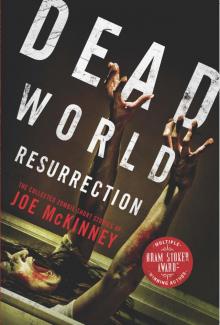 Dead World Resurrection
Dead World Resurrection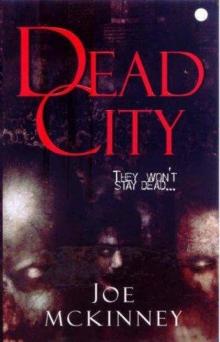 Dead City - 01
Dead City - 01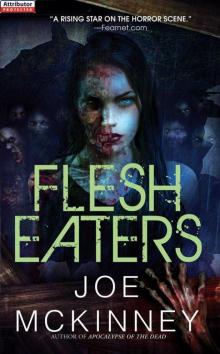 Flesh Eaters
Flesh Eaters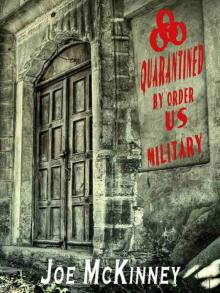 Quarantined
Quarantined Ultimate Undead Collection: The Zombie Apocalypse Best Sellers Boxed Set (10 Books)
Ultimate Undead Collection: The Zombie Apocalypse Best Sellers Boxed Set (10 Books)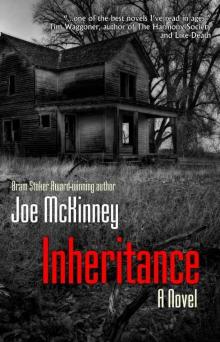 Inheritance
Inheritance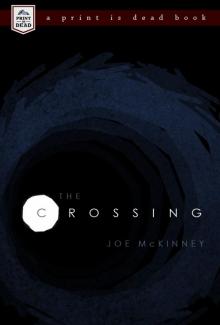 The Crossing: A Zombie Novella
The Crossing: A Zombie Novella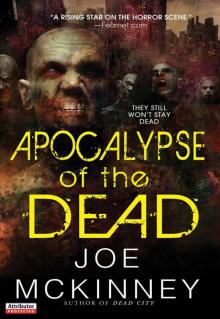 Apocalypse of the Dead
Apocalypse of the Dead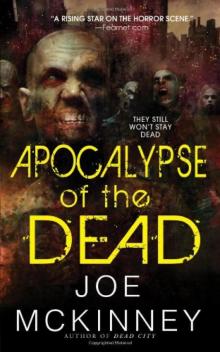 Apocalypse of the Dead - 02
Apocalypse of the Dead - 02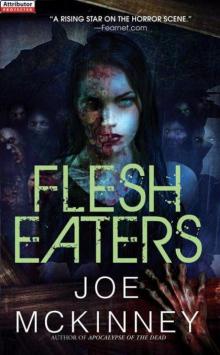 Flesh Eaters - 03
Flesh Eaters - 03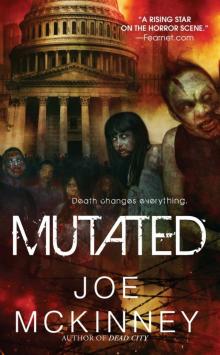 Mutated
Mutated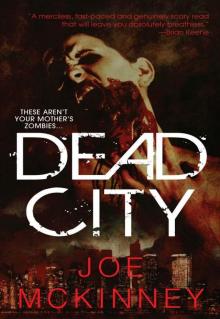 Dead City
Dead City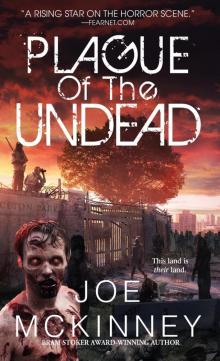 Plague of the Undead
Plague of the Undead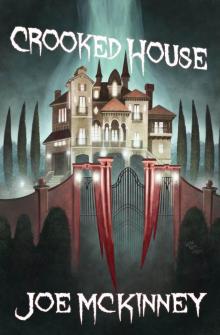 Crooked House
Crooked House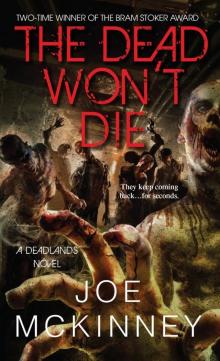 The Dead Won't Die
The Dead Won't Die